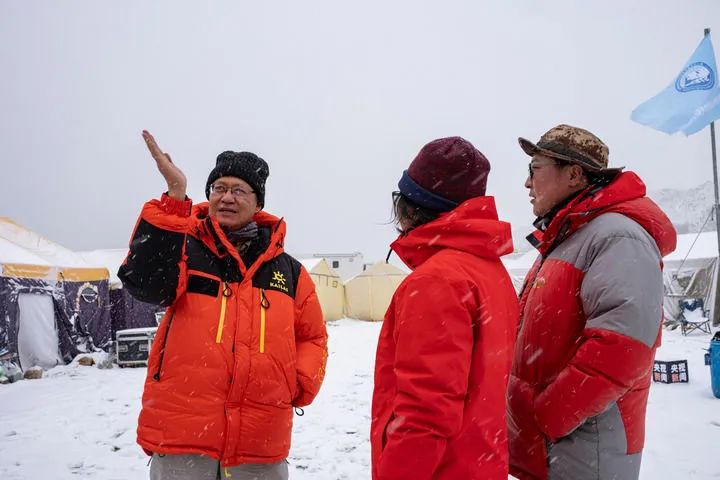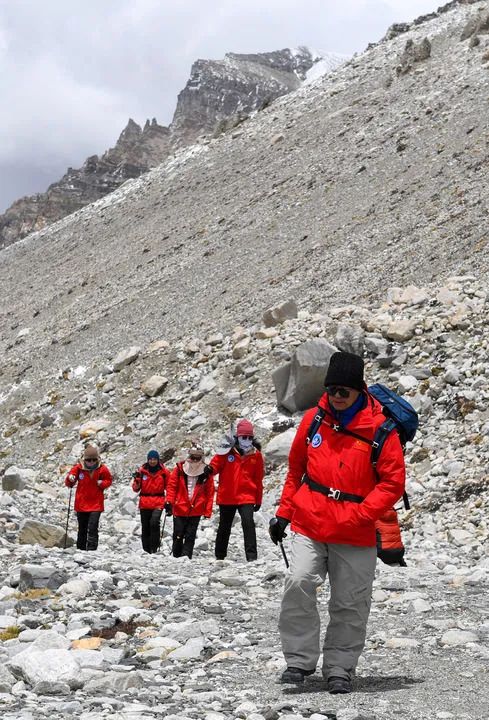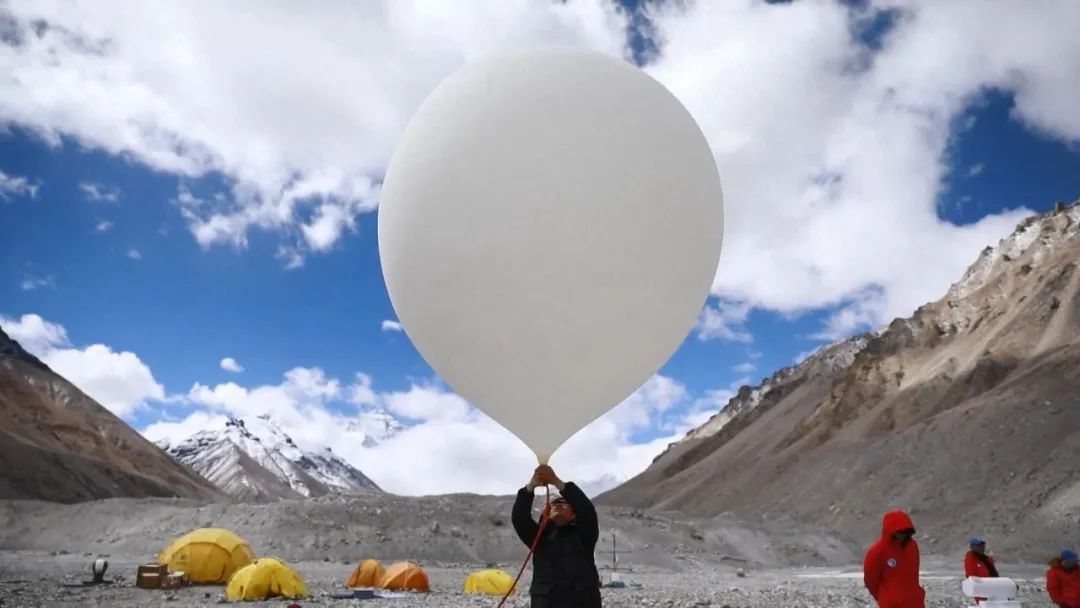
As part of the “Earth Summit Mission 2022" expedition, Professor Zhu Tong from PKU and his team have successfully carried out comprehensive research across various scientific issues on Earth’s highest peak—Mount Qomolangma. Let’s take a closer look at the team.

Mt. Qomolangma in the morning/ Xinhua News
The “Earth Summit Mission 2022” expedition is part of the second Tibetan Plateau Expedition and research Program. Professor Zhu Tong, Dean of the PKU College of Environmental Sciences and Engineering (CESE) and a Member of the Chinese Academy of Sciences, participated in the expedition, and led his team to successfully conduct all observation and sampling tasks.

Zhu Tong (left) communicating with other researchers at base camp/ Xinhua News
“
There are too many scientific mysteries waiting for us to explore in the magnificent Mount Qomolangma.
To study the impact of high-altitude environments on human body, Zhu’s team monitored the health conditions of 50 volunteers working at varying altitudes: 5,200 meters, 5,800 meters, 6,350 meters and 8,848 meters. All volunteers wore sensors oxygen for saturation and electrocardiogram monitoring, while trekking back and forth near those altitude areas.

Researchers hiking Mt. Qomolangma/ Xinhua News
Researchers also collected samples including blood, urine, saliva, and feces from the volunteers, and measured their blood pressure and pulse wave velocity to serve as material for follow-up research.
"As you rise in altitude, your body will change accordingly, which makes this intuitive data valuable," explained Zhu, " we will eventually have a lot of interesting results. " Results of their research may help to improve health condition for people living and working at high altitudes, as well as short-term visitors.

Researchers conducting a high-altitude ozone observation campaign on Mt. Qomolangma. /China Media Group
Other than that, the team also completed an ozone observation campaign, to study the impact of ozone on human health and the environment. They successfully launched a dozen ozonesonde balloons at an altitude of 5,200 meters, with the highest balloon reaching 39.1 km above the base camp. Professor Zhu explains that, "with the help of our ozonesonde balloons, we can measure the concentration profile of ozone from ground to the upper atmosphere, as it has an important influence on our health and the atmosphere".

The team of scientists climbing to the top of Mt. Qomolangma/ Xinhua News
This expedition on Mount Qomolangma is China's first scientific research above an altitude of 8,000 meters on the peak. The researchers established the world's highest automatic meteorological monitoring station and has measured the thickness of the ice and snow using high-accuracy radar for the first time.
We applaud their extraordinary grit and professionalism and thank them for their dedication to science!
